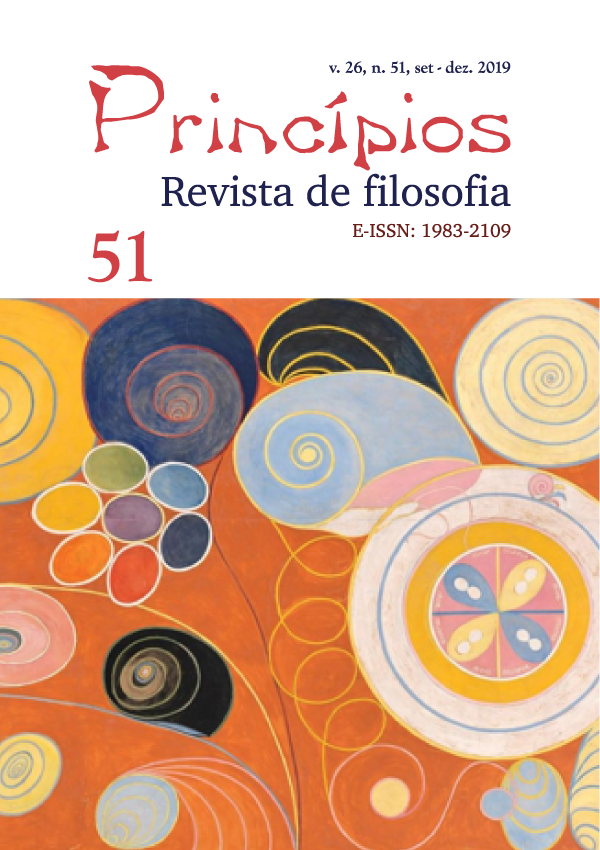Varieties of mental states and theories of self-knowledge
DOI:
https://doi.org/10.21680/1983-2109.2019v26n51ID17922Keywords:
Self-knowledge; Mental states; Beliefs.Abstract
This article deals with self-knowledge of beliefs. There are several mental states with their own peculiarities. Desires, judgments, feelings, emotions and beliefs. The focus of the article is on the knowledge of one's beliefs. Self-knowledge has characteristics, namely, first-person authority, aprioristic character, cognitive-discriminative capacity, infallibility, omniscience, asymmetry between the first and third person and impossibility of misuse of the pronoun "I" (SILVA FILHO, 2013, p. 33, n.2). In the everyday realm of common sense, there is no doubt about the self-attribution of beliefs, but concepts are not always used correctly, that is, there is an incomplete understanding of one's beliefs. However, does attributing rationality to the agent require knowledge of one's beliefs? According to Coliva (2016), there are dispositional beliefs and as commitment. With respect to the first type of belief, the agent has no epistemic responsibility, with the second yes. Therefore, self-knowledge of doxastic beliefs as commitment requires rationality of the epistemic agent, because there is the epistemic responsibility of the rational agent.
Downloads
Downloads
Published
How to Cite
Issue
Section
License
Authors retain copyright and grant the journal right of first publication with the work simultaneously licensed under a Creative Commons Attribution License that allows others to share the work with an acknowledgement of the work's authorship and initial publication in this journal.


 Português (Brasil)
Português (Brasil) English
English Español (España)
Español (España) Français (Canada)
Français (Canada)


